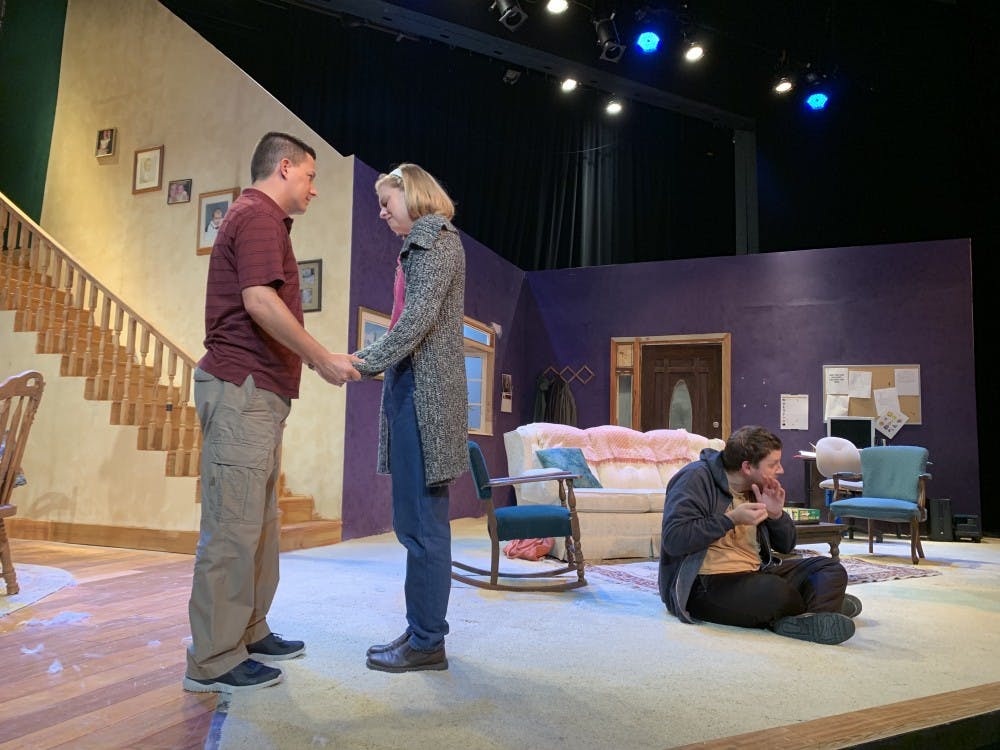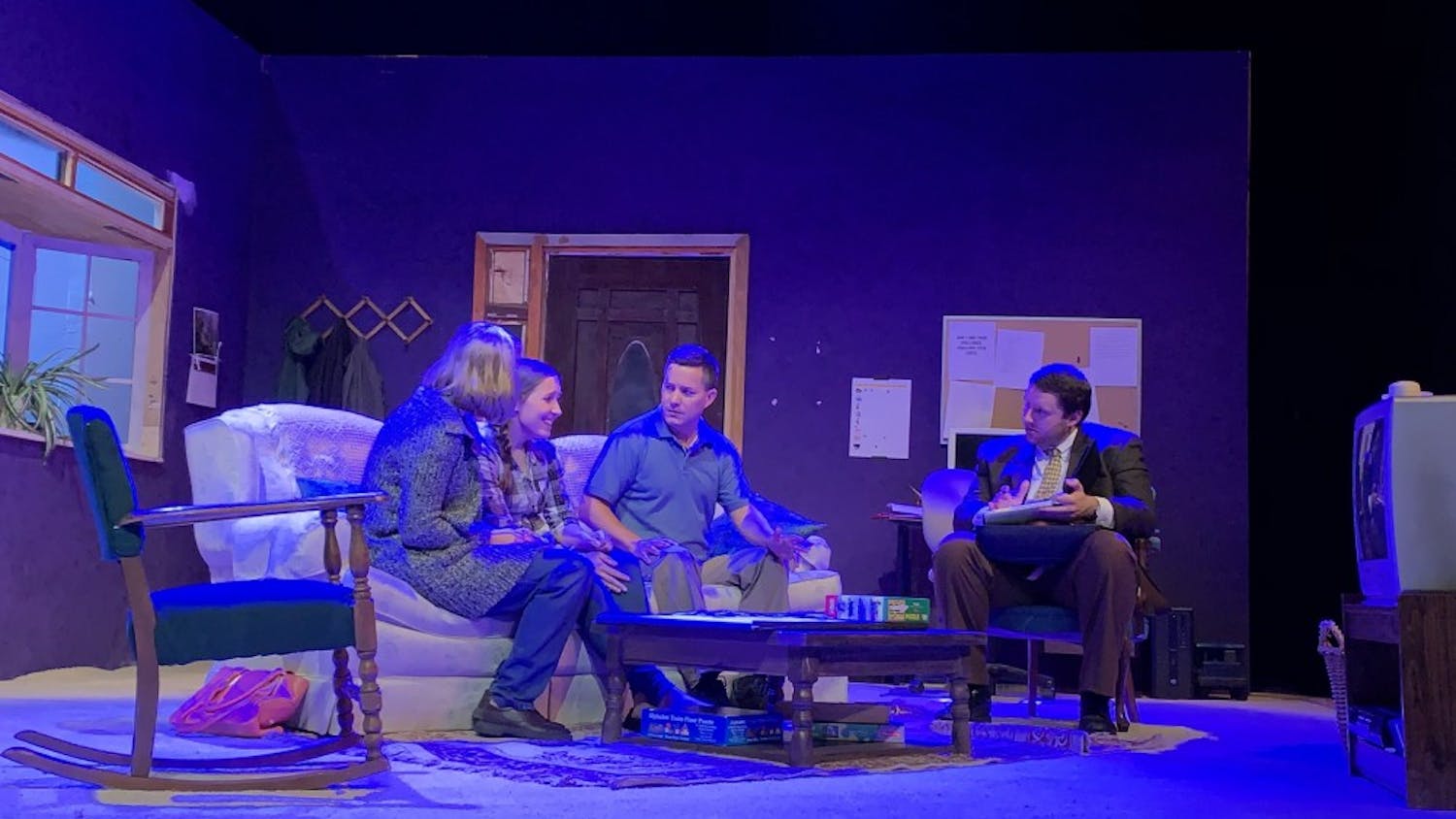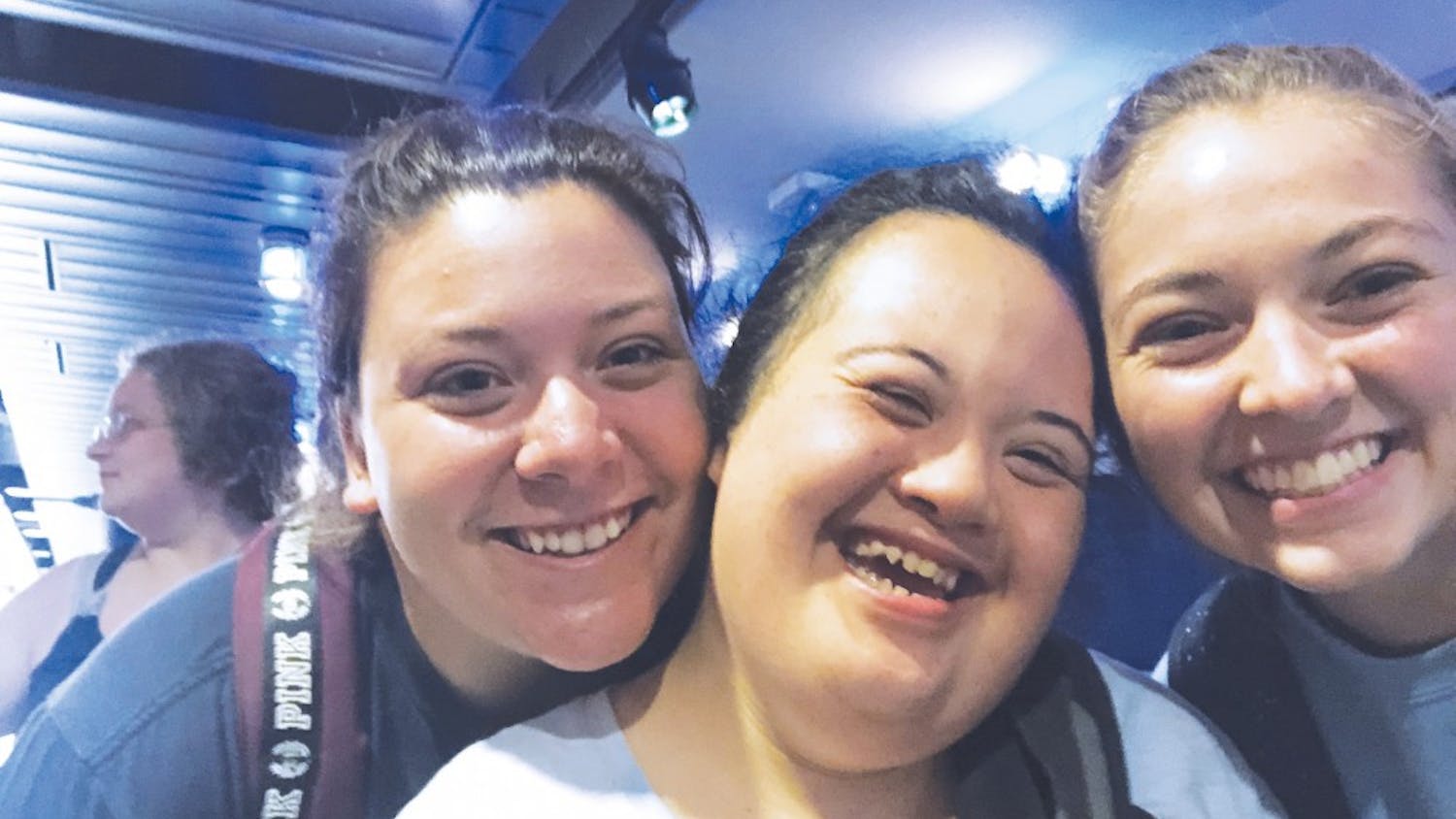“Sometimes the best thing we can do as Christians is to just shut up and listen.”
This was Upland community member Mark Lora’s response to the question, “How do you help a family who has a child with autism?” This was one of the many hard questions asked in the talkback discussions held after Taylor Theatre’s production of Deana Jent’s “Falling.”
Talkbacks are a way for a community to engage with and discuss plays after seeing them. The cast, director or professional experts are often brought on stage after the production for the audience to ask questions.
“Falling” tells the story of a family as they navigate life with their 18-year-old son Josh, who has severe autism. For this production’s talkbacks, the panels consisted of the cast, Director Tracy Manning, Bible professor Greg Magee, and Mark Lora and his wife Melissa — the parents of a son with autism. Not all talkbacks had the Loras, and Sunday afternoon’s Bible professor was Jeff Cramer.
“For me, the talkback after the show was almost more powerful because there was proactive conversations about how the church can love and support families with members who have developmental disabilities better,” said senior Rachel Davidovitch.
Many of the questions focused on Josh's grandmother, a well-meaning outsider who believed faith was the only solution to the family's struggles. Although she was trying her hardest, she sometimes came off hurtful. Many people had questions about how to avoid being this person, and how to pray for and help a family who has a child with autism. Much of the discussion boiled down to one question: How do you love someone genuinely while loving them well?
Together, the panel spoke about the need for patience and understanding even in discomfort. They also navigated the hard reality that prayers for healing are not always the most helpful thing possible, and that sometimes healing and progress look different than anticipated. It is the hard conversations and hard answers people don’t want to hear that foster growth and relationships.
“I think one of the complicated things about the play is that everybody's right,” Manning said. “It’s good for us to see these really distinct and unique voices around a common situation where nobody's really wrong.”
From the 16-year-old daughter struggling with the tension in her family to the mother trying to hold both herself and her family together, “Falling” gives a platform for every voice in a hard situation to be accurately heard. This was by no accident.
The cast and crew worked extensively to make sure they were accurately representing all of their characters. They consulted professionals and families in similar situations, as well as researched the underlying struggles families face to fully understand what they were representing.
“More and more, I realize realize that it does not matter how much I disagree with someone,” said Nate Aeilts (’16), who played Josh. “I'll be kind to everyone because they're involved in a struggle I cannot comprehend.”
Being quick to listen and slow to judge was a theme repeated many times during the talkbacks. Everyone on the panel wanted to be clear that the single most helpful thing you can do as a friend is to be patient and understanding.
The impact of listening to the story the play told was clear. It was a very emotional experience for the cast, panel and audience.
“I started in mental health services in the early 1960’s,” an audience member told the cast after Saturday night’s performance. “This play brought back so many memories. God bless you folks for your kindness and development.”





